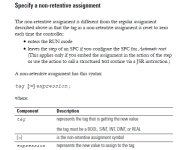dbh6
Lifetime Supporting Member
Hello everyone,
Ok, as i'am becoming a more advanced plc programmer, I have been on more and more service calls lately. Some programs i ran into are written in structured text, and coming from a electrical engineering background, it took me a while to trouble shoot. Anyways i have the sudden interest to understand how to write code in structured text, and i would like to know if anyone has, like a .pdf or a book online or something that i can use to build my knowledge, thanks.
Ok, as i'am becoming a more advanced plc programmer, I have been on more and more service calls lately. Some programs i ran into are written in structured text, and coming from a electrical engineering background, it took me a while to trouble shoot. Anyways i have the sudden interest to understand how to write code in structured text, and i would like to know if anyone has, like a .pdf or a book online or something that i can use to build my knowledge, thanks.







